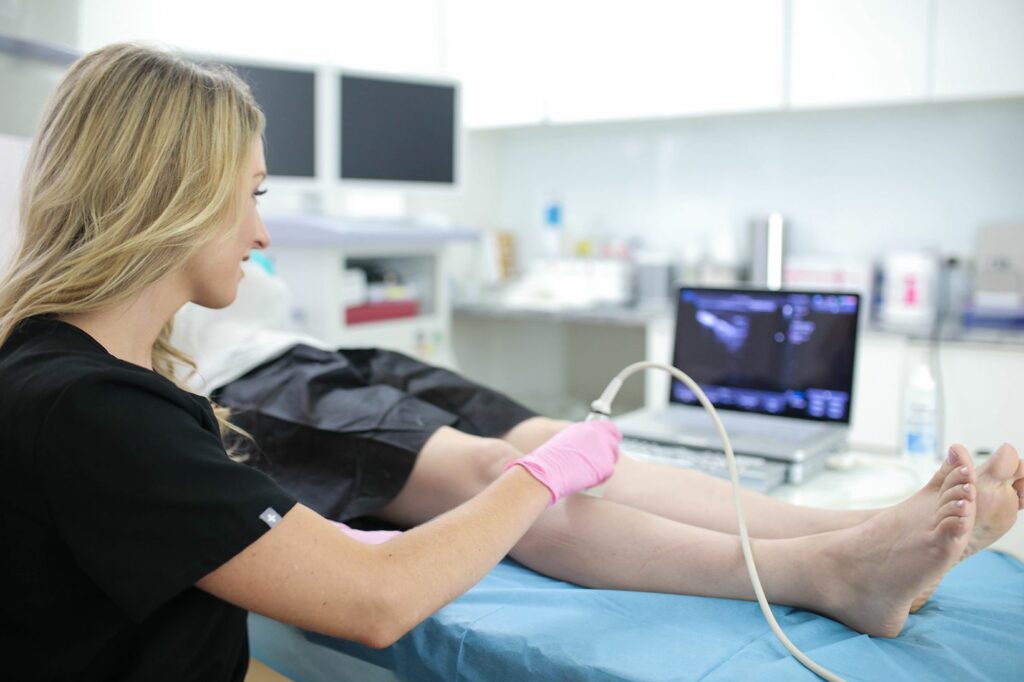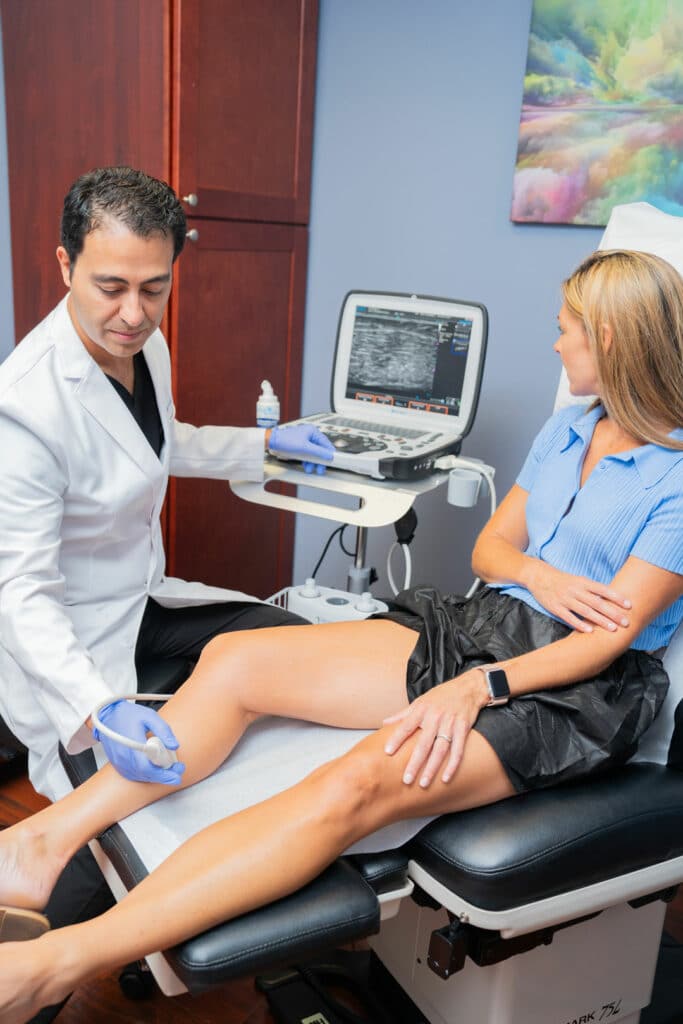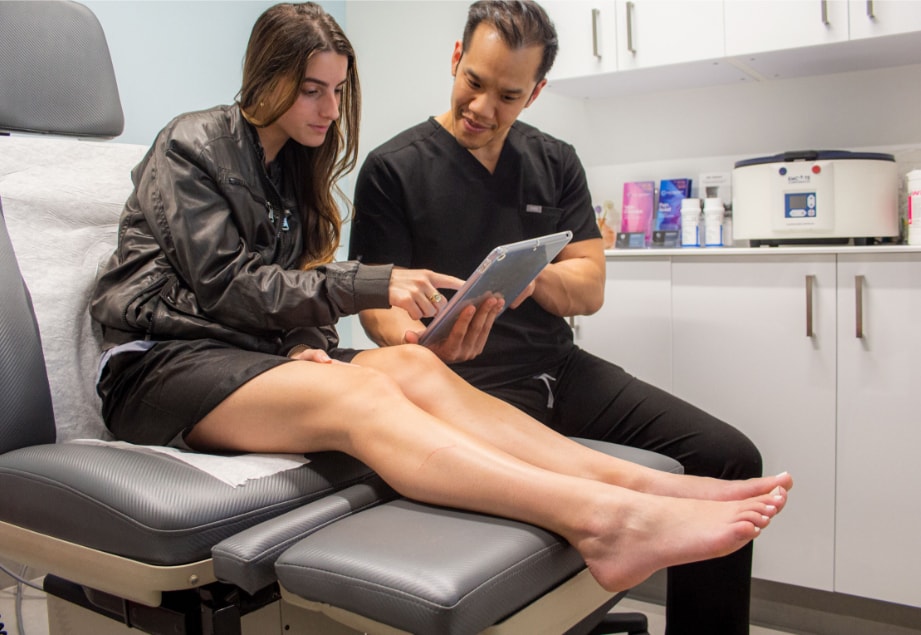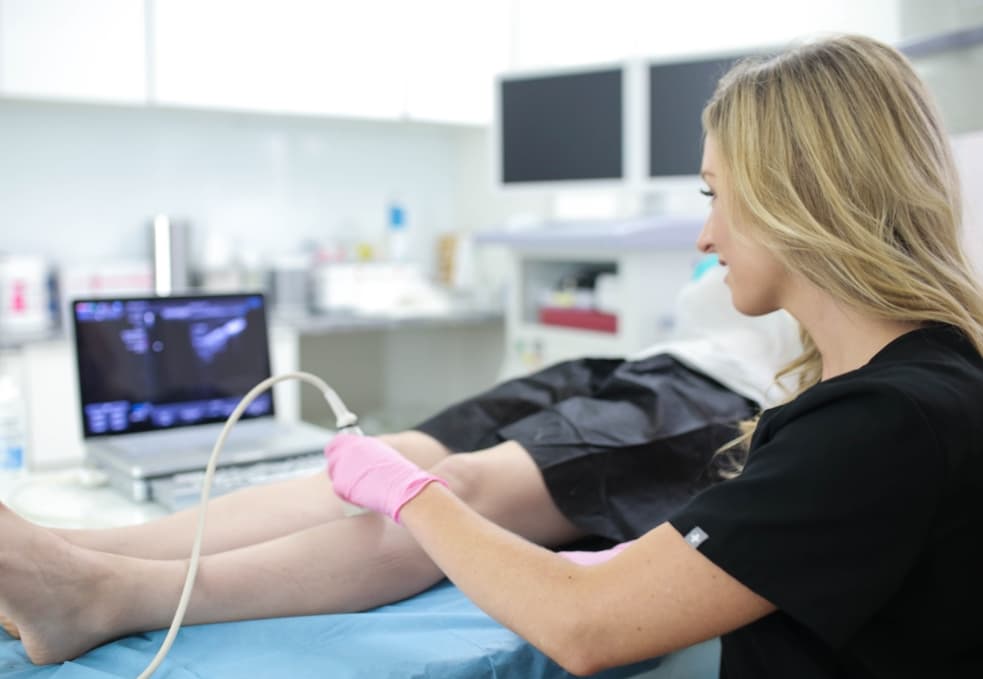The role of vein valves in blood circulation
The circulatory system is made of two types of blood vessels — arteries and veins. The arteries carry oxygenated blood from the heart to various parts of the body, and the veins carry deoxygenated blood from your limbs to the heart. The arteries and veins keep pumping blood to and from the heart to ensure optimal blood circulation. But the blood in leg veins must travel against the force of gravity to reach the heart.
And that’s where vein valves play a significant role. The vein valves are key components of the circulatory system. They act like little one-way doors that open up to allow blood to flow towards the heart and then close up. As such, they allow blood to flow towards the heart against the force of gravity. This is one of the most crucial roles of vein valves — they allow you to maintain proper blood circulation at all times.

What happens if you have weak valves in the leg veins?
The valves in veins prevent the backflow of blood. If the valves are weak, gravity may force blood to flow backwards and accumulate in the leg veins. The most common symptom of weak valves in leg veins is the pooling of blood in the legs. This happens because the blood is not being properly circulated back to the heart. The pooling of blood can cause the legs to feel heavy and tired. It can also lead to swelling in the legs and feet.
If the valves in the veins are weak, it can also cause blood clots. Blood clots can be dangerous because they can travel to the lungs and cause a pulmonary embolism, which can be fatal. Weak valves in leg veins can also lead to spider veins and varicose veins, i.e., enlarged veins that can bulge out of your skin’s surface be painful and unsightly. Some of the other possible symptoms of damaged vein valves include aching, cramping, and restless legs.
What are the causes of weak valves in leg veins?
- Aging: As we age, our veins become less elastic and the valves that control the flow of blood become less effective. This can lead to weak valves and vein disease.
- Obesity: Being overweight puts extra pressure on the veins in your legs and can cause the valves to weaken, leading to an increased risk of vein disease.
- Pregnancy: The increased blood volume and pressure during pregnancy can cause valves in leg veins to leak. The valves may also weaken because of the increased volume of the hormones estrogen and progesterone, which can make the valves become floppy.
- Standing or sitting for long periods: This can cause blood to pool in the veins and put pressure on the valves, eventually leading to collapsed or damaged veins.
- Injuries: Veins can be injured by trauma, surgery, or other means. This can cause the valves to weaken or even fail, leading to an increased risk of vein disease.
- Smoking: Smoking damages the walls of your veins, making them less elastic and more likely to develop weak valves, leading to a higher risk of vein disease.
How can you strengthen your vein valves and reduce the risk of vein disease?
If you’re concerned about weak vein valves or developing vein disease, there are steps you can take to help. Exercising, maintaining a healthy weight, and avoiding prolonged sitting or standing are all important for optimal vein health. Let’s explore some specific ways you can help keep your vein valves functioning properly.
1. Get moving.
Exercise is one of the best things you can do for your overall health, and it’s also beneficial for your veins. Exercise helps your circulatory system by promoting vein dilation and increasing blood flow. This increased blood flow helps to push along any pooling blood in your veins and strengthens the valves that keep blood flowing in the right direction.
2. Eat a vein-healthy diet.
Just as exercise is good for your veins, so is eating a healthy diet. A diet rich in fiber, vitamins, and minerals helps to keep your veins functioning properly. Fiber aids in digestion and prevents constipation, which can lead to hemorrhoids. Vitamins C and E are antioxidants that help to protect your veins from damage. And, minerals like potassium and magnesium regulate blood pressure, which is important for vein health.
3. Maintain a healthy weight.
Being overweight or obese puts extra pressure on your veins, which can damage the valves and cause or worsen varicose veins. Losing weight can improve your vein health and reduce your risk of developing vein disease.
4. Avoid prolonged sitting or standing.
When you stand or sit for long periods of time, the valves in your veins have to work harder to keep blood flowing in the right direction. This can eventually lead to valve damage and pooling of blood in the veins—a condition known as venous insufficiency. To avoid this, take breaks often and move around and stretch your legs every 30 minutes or so.
5. Wear compression stockings.
Compression stockings are a special type of stocking that helps to improve blood flow in the legs. They work by applying gentle pressure to the legs, which helps to keep blood from pooling in the veins. Wearing compression stockings can help to reduce the risk of developing vein disease or prevent your existing vein problems from worsening.
Maryland Vein Center is a state-of-the-art medical center specializing in minimally invasive spider vein and varicose vein treatments. Our vein doctors carefully examine your leg veins, discuss your symptoms, determine if you have underlying vein disease because of damaged vein valves, and curate a personalized vein treatment plan. If you have the signs and symptoms of damaged vein valves, such as leg heaviness, aching, restless leg syndrome, spider veins, or varicose veins, please schedule an appointment at our vein center in Bethesda, Maryland.





